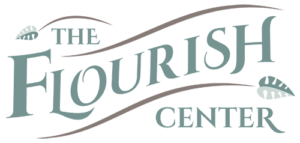
Using Our Resources to Regulate
Written by our Licensed Professional Counselor, Jody Cecil
For many people, this time of year feels more challenging emotionally and physically. Shorter days and the holidays often bring a sense of dysregulation. Individuals may find it more difficult to modulate arousal.
One minute we’re anxious and afraid; the next, we’re in a state of depression.
This year, we experienced an intense and polarizing election. With change on the horizon, the uncertainty may result in heightened stress and anxiety. Or perhaps a sense of profound sadness and hopelessness.
Within each person exists a myriad of resources – strengths and competencies that help us maintain our arousal even in the face of the most difficult circumstances. Utilizing those resources can lead to a greater sense of calm and stability.
Do any of these feel familiar?
- Overdo or keep busy
- Excessive need to excel at school or your job
- Anticipate others’ needs
- Cling to others to feel safe
- Dissociate
- Leave, flee or run away
- Fight, get irritated or angry easily
- Escape into books, art or music
- Isolate or withdraw
- Sleep too much
- Stop “feeling”
These survival resources often fall into the categories of what we know are instinctive ways of surviving – fight, flight, freeze, fawn/collapse, and attach/cry for help.
Please resist the urge to judge yourself for your survival resources. They allow us to cope with adversity, especially as children. Each one of our survival resources helps to modulate arousal and emotion.
Of course, they often also result in a cost to us. If use work and constant activity to cope with distress, it may result in physical and mental health issues. Isolating yourself from others protects you, and it also keeps you from relationships and a sense of belonging.
Consider these nine categories and examples of each:
- Relational – time with close friends and family, support groups, pets, activity groups
- Somatic – exercise, body work, warm baths, rocking chairs
- Emotional – friends, family and pets with whom we can give and receive emotional support, activities that elicit pleasant emotions
- Intellectual – school, classes, crossword puzzles, books, documentaries
- Artistic/Creative – people to share in creative activity, opportunities that allow for creative expression through music, art, dance, poetry, cooking, writing, crafts
- Material – a home, comfortable bed, objects that enhance pleasure in life
- Psychological – therapy, support groups, self-help books
- Spiritual – participation in a spiritual community, meditation, prayer, access to spiritual teachers
- Nature – gardens, lakes, mountains, nature walks or drives, sunrises and sunsets, flowers, wild animals, colorful fall foliage
While we may have access to external resources, we also need to develop the internal ability to engage in them. It takes time to build on our creative resources, but it is possible.
I encourage you to explore and identify your current creative resources. Then choose a few and spend time engaging with them.
Today I leave you with a resource that encompasses multiple creative resources, a poem by Liezel Graham.
As you read it, sit back and allow yourself to breathe more slowly. Read it a few times and allow yourself to really savor it. Imagine yourself sitting with someone who truly cares for you.
May calm and hope wash over you.
“Just for today let me be all the things that your tired heart needs.
sit with me, hold my hand, don’t speak.
we don’t need words everywhere, a future mapped on slate.
if we let it, tomorrow will plant its own tree for us to shelter under.
– just for today, let’s just be.”
If you find you need extra support during this season, please reach out. I offer a no strings attached initial chat to see if working together is a good fit. You can reach me here.

Recent Comments